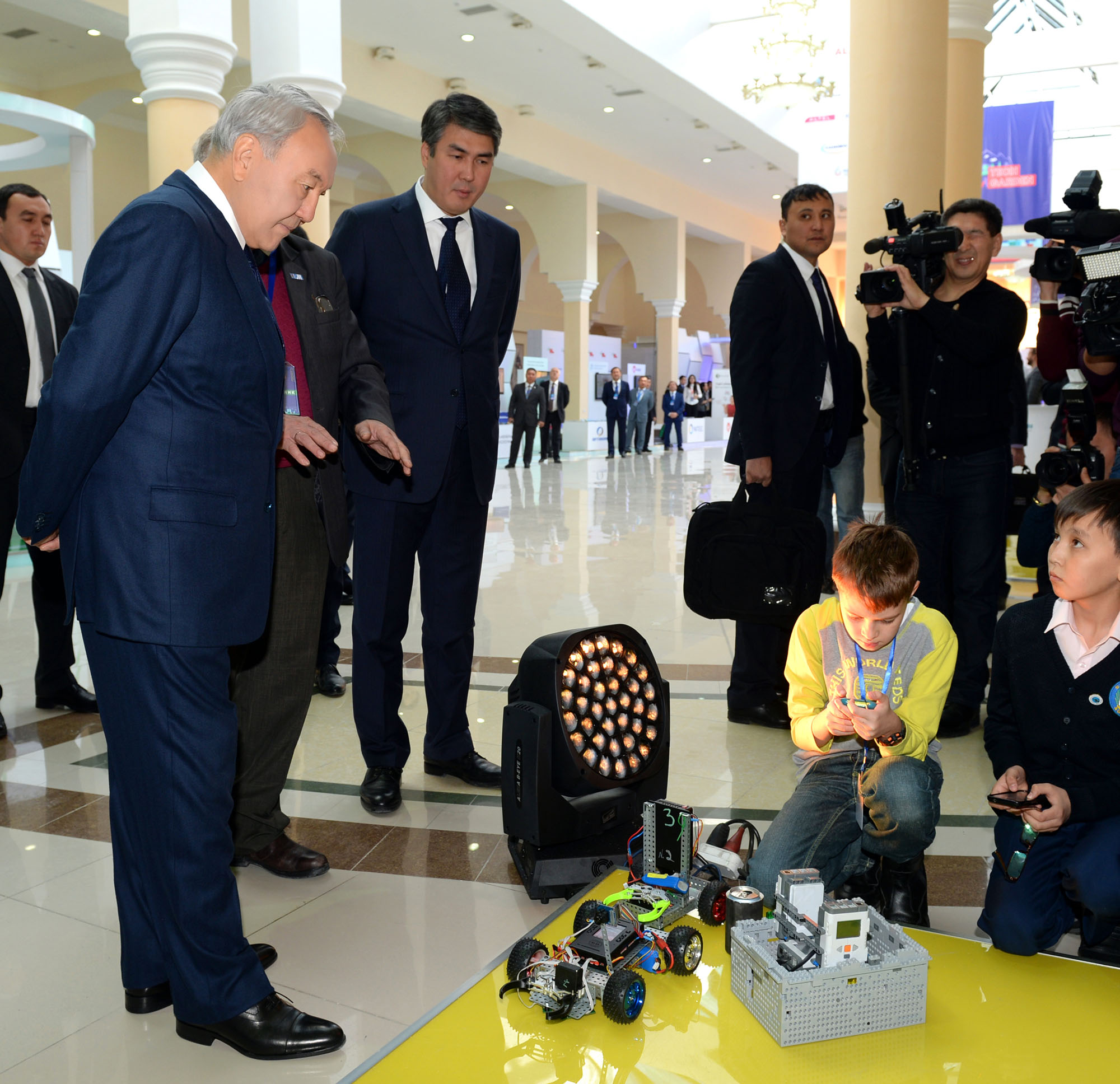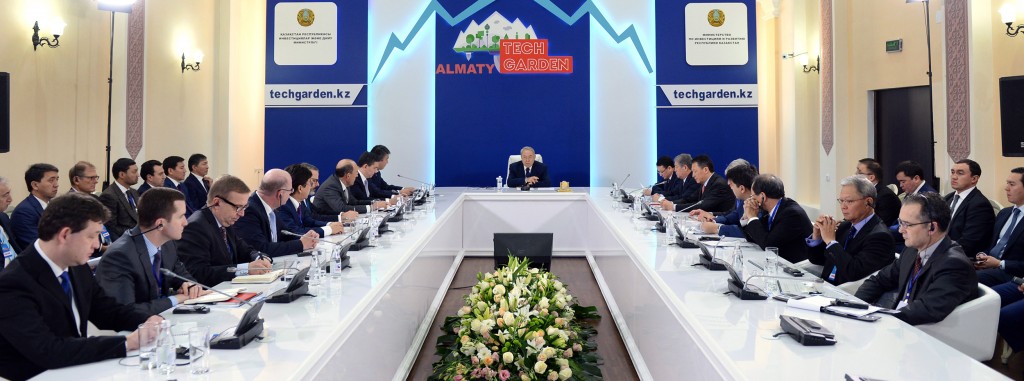ASTANA – Kazakh President NursultanNazarbayev highlighted the importance of government backing for innovative research Dec. 8 when he attended a conference on the issue in the TechGarden Innovational Cluster and visited an exhibition of high-tech research projects at Al-Farabi Kazakh National University in Almaty.

President Nursultan Nazarbayev continued with his push for economic diversification of the country, urging the young to be more engaged in scientific research…
The President noted that he had instructed the government to strengthen work in this direction in his Nov. 11 address to the people.
“Innovation should lead to a sharp increase in productivity and efficiency. The state encourages the growth of innovation. Over the past five years, the support of this sector has tripled and reached 50 billion tenge (US$276.2 million). Perhaps in absolute terms it is not so much, but the growth dynamic is there. Gross expenses of research and development increased from 49 to 74 billion tenge (US$270.6-$408.7 million), of which 30 billion tenge (US$165.7 million) is financed at the expense of the private sector. It is a good indicator,” said Nazarbayev. He added that according to international statistics in terms of patents issued on innovative projects, Kazakhstan occupies 42nd place out of 140 countries of the world
The head of state stressed that preparation of innovators begins as early as secondary or even primary school. He underlined it is to this end that a network of Nazarbayev Intellectual Schools was launched across the nation with contest-based enrollment for the most-talented children. “The scientists who went abroad (before) are now returning, because we are creating appropriate conditions for their work. This is the forerunner for innovation development,” he added.
Nazarbayev noted that innovation means quality and competitiveness of Kazakhstan’s products, an important issue for the nation as a member state of the Customs Union and future member of the World Trade Organisation (WTO).

… and outlining measures the state is contemplating to promote this line of development to selected officials and experts.
Among other speakers at the conference, Minister for Investment and Development Asset Issekeshevreported on the situation in the field of innovative development. In his words, the share of innovative activity has nearly doubled compared to 2009 and at the end of 2014 should amount to 10 percent. Plans show an increase in this figure up to 20 percent by 2020, while the share of innovative products in the GDP will increase to 2.5 percent. Over 3,500 projects have been reviewed lately, out of which 577 were approved and received full or partial government funding.
Minister of Education and Science Aslan Sarinzhipov announced that the nation’s long-term development strategy stipulates that the government’s spending on research and development must reach a level equaling 3 percent of the GDP by 2050.
Prior to the meeting, Nazarbayev visited the exhibition of innovative projects organised on the basis of the university science library, where the participants became acquainted with the achievements and development plan of the institution. At the meeting devoted to innovation cluster development, he was briefed on the implementation of projects aimed at the creation of biomedical and innovation clusters in the city.
The first step on the way to a biomedical cluster was the opening of a diagnostic medical centre with South Korean partners. The 2,400-square metre facility is in the university Keremet Centre of Service for Students, where all teachers and students can receive high-standard medical services with modern high-tech equipment. The total investment in the centre was 1.2 billion tenge (US$6.6 million).
The establishment of the biomedical cluster is aimed at enhancing development of the scientific and human resources potential of the country, expansion of international cooperation and transfer of innovative medical technologies, as well as integration of research and education activities.
The engineering and high-technologies innovation cluster is another of the university’s large-scale projects. Approximately 9.5 billion tenge ($52.5 million) will be invested in the construction of a technology park, business incubator, industrial center, laboratory buildings for a research institute and comfortable dormitory for 1,500 for students and young scientists.
The purpose of the project is creation of modern infrastructure for scientific research, the transfer of high technology, commercialisation of scientific innovation and integration of science, education and innovative production at the transnational level.
This project will increase the volume of scientific research and development and help create a cluster based on high-tech start-up companies and enterprises, as well as attract international investment in science. Perhaps the key statement that the President made on the day was, “Once again I appeal to our young people – do science.” There is a hope that the meeting will help improve conditions created for youth willing to implement their dreams in line with this appeal.
